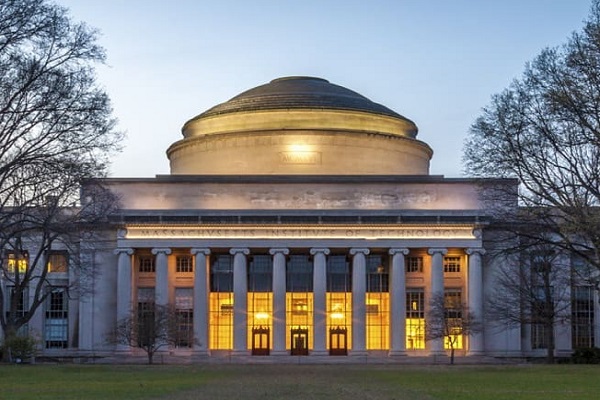Massachusetts Institute of Technology scholars recognized with 2023 Hertz Foundation Fellowships
The Fannie and John Hertz Foundation has announced that it has awarded graduate fellowships to six students with ties to MIT. These prestigious awards provide each student with five years of doctoral-level research funding (up to a total of $250,000), which gives them flexibility and autonomy to pursue their own research interests, beyond the traditional graduate training path.
Fellows also enjoy lifelong mentoring and professional support from a network of over 1,200 former Hertz Fellows who are scholars and leaders in science and technology. The connections forged among these individuals in the 60 years since the inception of the Hertz Foundation have sparked collaborative startups, research, and technology commercialization.
The six MIT recipients are among 15 doctoral scholars selected from around the United States. “The innovation, creativity, deep and connected knowledge, grit and determination, and ambition to make an impact displayed by this cohort stand out and promise great things for the years to come,” says Philip Welkhoff, a 2004 Hertz Fellow and board director who leads the selection process. “We are all excited to see the advances they develop over their careers that will drive progress across so many areas of endeavor, resulting in new scientific knowledge, new technologies, and strengthened national security.”
This year’s MIT-affiliated awardees are Jeffrey Brown, Liyam Chitayat, Vaibhav Mohanty, Sahil Pontula ’23, Benjamin Spector ’22, MEng ’22, and Beatriz Yankelevich.
Jeffrey Brown is pursuing a PhD at MIT in electrical engineering and computer science and is a member of the Synthetic Neurobiology Group led by Professor Ed Boyden — who is also a Hertz Fellow. As an undergraduate at Stanford University, Brown majored in philosophy and completed two master’s degrees, one in computer science and one in electrical engineering. There, he developed a passion for neural engineering, working on the Stanford Artificial Retina Project, an initiative to restore vision through retinal prostheses. At MIT, Brown wants to develop novel computational and biological tools for seeing and controlling biological systems and create new computational methods to find the hidden principles within the data. Drawing on these principles, he hopes to tackle understanding the brain and curing neuropsychiatric diseases from the ground up.
Liyam Chitayat will begin her doctoral program in computational and systems biology at MIT this fall. She aims to develop fundamental technologies and biological interfaces to enable human enhancement on a physiological and molecular level. Chitayat began her undergraduate studies at Tel Aviv University at age 12, completing double majors in chemistry and biology and graduating summa cum laude in both fields. She is currently completing her master’s degree in biomedical engineering, where she has aimed to develop novel computational methods for microbiome engineering. She has also served in the bioengineering department at the Israeli Ministry of Defense, Directorate of Defense Research and Innovation, leading computational biology efforts.
Vaibhav Mohanty is a graduate student in the Harvard-MIT Program in Health Sciences and Technology, where his research focuses on the intersection of theoretical physics, chemistry, and evolutionary biology to develop mutational “traps” to combat the rapid evolution of proteins in infectious pathogens and in cancer. He received his first PhD in theoretical physics from the University of Oxford, where he studied as a Marshall Scholar. Prior to that, Mohanty earned a master’s degree in chemistry and a bachelor’s degree summa cum laude in chemistry and physics with a minor in music from Harvard University, where he was awarded a Barry M. Goldwater Scholarship.
Sahil Pontula ’23 completed two bachelor’s degrees at MIT in physics and electrical engineering and will remain at the Institute to begin a doctoral program in electrical engineering and computer science in the fall. His doctoral research will center on using nonlinear and quantum optics to generate reliable sources of macroscopic quantum states of light, which could revolutionize existing quantum information and sensing platforms. In addition, he plans to explore more unconventional paths, such as pursuing his passion for climate activism by harnessing the power of quantum optics and nanophotonics for energy applications, including enhanced batteries and photovoltaic devices.
Benjamin Spector ’22, MEng ’22 is pursuing a PhD in computer science at Stanford University, where his research combines systems and machine learning; in particular, he focuses on creating new methods and architectures for robust and transparent artificial intelligence while enabling adoption by a growing scientific and engineering community. He earned two bachelor’s degrees at MIT in computer science and engineering and mathematics, as well as a master’s in engineering in computer science. While at the Institute, Spector published machine-learning research at conferences and presented work on computational plasma physics at an annual meeting of the American Physical Society’s Division of Plasma Physics. He also started a nonprofit startup accelerator, Prod, whose cohort companies raised $25 million under his leadership.
Beatriz Yankelevich is a doctoral student at MIT in the Engineering Quantum Systems Group, researching waveguide quantum electrodynamics with the goal of developing a modular quantum computing architecture. She is also deeply interested in science policy and outreach and hopes to pursue a career in academia focused on quantum computing research. A graduate of Stanford University, Yankelevich majored in engineering physics with a concentration in quantum science and engineering. Four years ago, as an undergraduate, she founded the Stanford Program for Inspiring the Next Generation of Women in Physics, a free, virtual summer program for high-school-age women from underrepresented backgrounds in physics. During the program, students learn Python and are introduced to modern physics research topics by Stanford students and professors.

